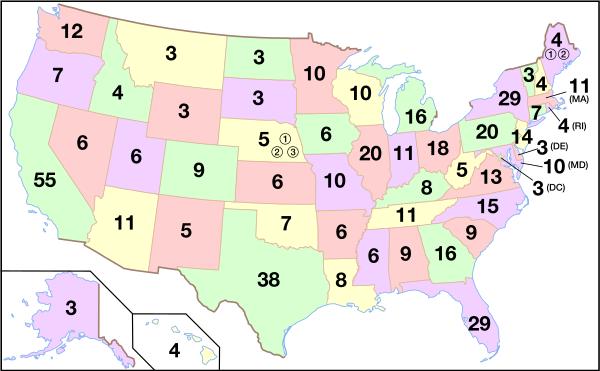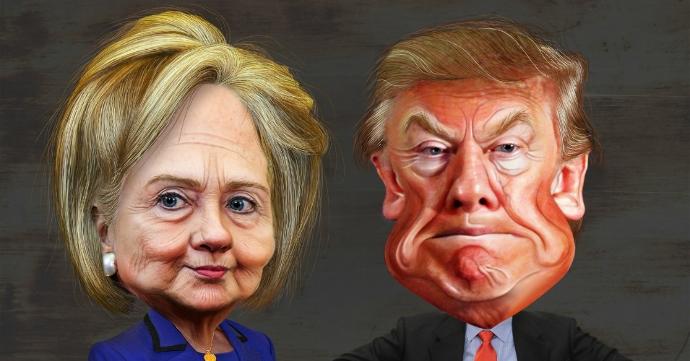
The term “Electoral College” will dominate headlines on Election Day TODAY, but what does it really mean?
As Americans get ready to cast their ballots today, they should learn how the Electoral College was founded, how it works and what happens if Hillary Clinton and Donald Trump become deadlocked at 269 electoral votes apiece.
Delegates at the Constitutional Convention in 1787 were divided on how to pick the nation’s president. While some pushed for the popular vote to determine the commander-in-chief, others were in favor of Congress picking the president and some believed state legislatures should decide. Instead, a compromise was reached where regular citizens would have a say, but the final decision would be made by electors.
The process for picking a president is outlined in the 12th Amendment, which was ratified in 1804, the same year the Electoral College system debuted.

Did you know that at least 4 times out of 56 times (which equates to 7%) that the Electoral Votes named our President. The last time was in 2000. The Electoral College Distorts the Campaign. Did you know that there are three states: California, Texas, and New York that don't get campaign visits, only TV ads. This is crazy, these states make up 25 % of the nation's population. If that doesn't tell you something about the electoral college, nothing will.
The rules if there is a tie at 269 electoral votes each are bizarre to say the least.
The Electoral College system further distorts the presidential campaign by causing the candidates to grant extra weight to the parochial needs of the swing states. If you have to carry Florida to win, it elevates the already ever-present need candidates feel to pander to elderly voters, Cuban-Americans, orange-growers and any other group that can deliver a bloc of Floridians. The same thing with Iowa and ethanol subsidies and other agriculture-friendly policies, except even more so because Iowa is not only a swing state over recent cycles but has become since 1976 the key first state in the presidential nominating process. . (But that last bit about the nominating process, of course, is not rooted in the Constitution.)
The Electoral College system further distorts the one-person, one-vote principle of democracy because electoral votes are not distributed according to population. Every state gets one electoral vote for each member of its delegation to the House of Representatives (this by itself would be a rough measure of its population) and each state also gets two “bonus” electors representing its two senators.

In case of a tie, or if no candidate receives a majority of all electoral votes cast for president, the choice of president is thrown in the House of Representatives but the election is conducted on a one-state one-vote basis. (Yes, Wyoming – population 563,000 in the 2010 census -- would have equal say in the selection of the president with California – 37 million.) And to win, a candidate must receive the support of an absolute majority of states.
But states that have an even number of House members may deadlock. (Minnesota, with its current delegation of four Democrats and four Republicans, would be a good candidate for this fate.) A deadlocked state cannot vote at all for a presidential candidate. But, to produce a winner, one candidate would still have to win 26 states, even though several states would presumably be deadlocked.
If no presidential candidate can get to 26, there is no constitutional mechanism for producing a winner. The vice president (whose selection in this scenario would be thrown into the Senate) could serve indefinitely as acting president. This has never happened, although it has come close. If we wait long enough, it will happen someday. Will today be that day??
GO VOTE!
Most Helpful Opinions